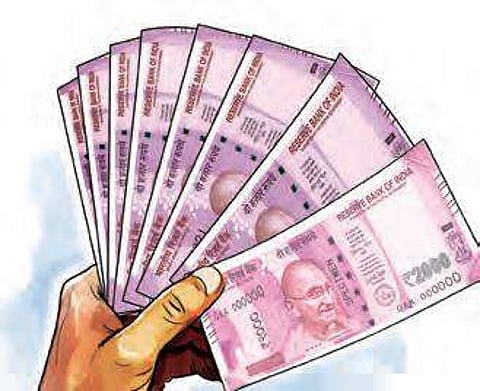

NEW DELHI: Despite impressive progress in enabling competitive markets, pro-crony policies have has destroyed value in the economy, noted the Economic Survey of 2019-20. In its analysis, the Survey said that pro-crony policies, in contrast to pro-business ones, erode wealth in the economy as cronyism fosters inefficiencies by inhibiting the process of creative destruction.
These policies, according to the Survey, may promote narrow business interests and may hurt social welfare because what crony businesses may want may be at odds with the same. It added that in order to become a $5 trillion economy, India must wean away from pro-crony policies.
ALSO READ | Budget 2020: India needs cash and lots of it, can Nirmala Sitharaman deliver?
It also reiterated the common belief that business houses which are close to political parties, also known as connected firms, get undue advantages. The survey highlighted a study by scholar Mara Faccio (2006) which examines politically connected firms in 47 countries.
The study found that around the time that a firm announces that managers or large shareholders are entering politics, there is a positive impact on stock price as markets anticipate additional sources of profit.
Crony businesses, according to the survey, may lobby the government to limit competition in their industry, restrict imports of competing goods or reduce regulatory oversight.
ALSO READ: Economic Survey turns to Thalinomics to show how life has changed for the better now
To note, many social welfare activists have accused large business-houses/lobbyist of meddling policies and some of them have even to the notice of public. While in most of cases, cronies are said to have benefitted from their connections, there are exceptions when poor business model of a crony has became reason of his/her downfall.
“These initiatives enhance the lobbying group’s income but undermine markets and reduce aggregate welfare. Thus, pro-crony policy can inadvertently end up being hurtful to businesses in general,” the survey noted.
The latest survey also came down heavily on the allegedly massive scams that took place in UPA-2 era i.e 2G spectrum allocations and coal block allocations. It said that the CAG report on the 2G allocations in 2011 appears to have reversed the fortunes for “connected” firms.
ALSO READ | It's easier to buy a gun in Delhi than to set up a restaurant: Economic Survey
The influence of connections, according to the Survey, is also seen in rural India as the survey highlighted the study done by Lehne, Shapiro & Eynde (2016) which examine bidding data on more than 88,000 rural roads built under the Pradhan Mantri Gram Sadak Yojana (PMGSY) and juxtapose this data with election results.
Using a large sample spanning 8116 candidates in 4058 elections from 2001 to 2013 and employing a regression discontinuity design, the study finds that after close election victories, contractors affiliated to the winning politician are more likely to be awarded road projects.
In its subheading, ‘Riskless Returns: The Case of Wilful Default’, the survey notes that as of 2018, willful defaulters owed their respective lenders nearly Rs 1.4 lakh crores and the number has been steadily rising since the early part of the current decade. It adds that crony lending that led to wilful default, wherein promoters have collectively siphoned off wealth from banks, led to losses that dwarf subsidies directed towards rural development.
In its conclusion remark, the survey notes that reforms in pushing pro-business policies must continue.